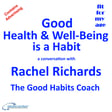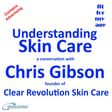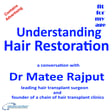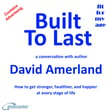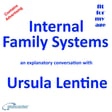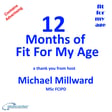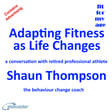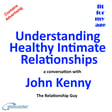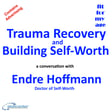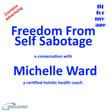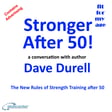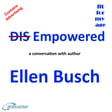
Crafting Positive Stories with David Robinson
Crafting positive stories helps us to reshape our beliefs, & experiences to promote positive change & personal growth.
David Robinson, is a mindset coach who uses story work to help people understand how reframing the stories of their life can help them to achieve a more contented life.
In this episode of the Abeceder health and well-being podcast Fit For My Age, David explains to host Michael Millward how the words we use to talk to ourselves create the stories that define how we live.
David describes how in the past he has played with words to change how he perceived an experience to enable him to change his mind set and his actions.
He describes how the different stages of the constructive storytelling process contribute to reframing that story and creating a positive impact.
David and Michael discuss how human beings have the power of free choice, and the choices that humans are preprogrammed to make.
Listening back to this discussion connects to routine changing tools like uRoutine and tools like BIG PICTURE that help workers to join the dots across a whole organisation to improve their productivity.
Find out more about Michael Millward and David Robinson at Abeceder.co.uk.
Audience Offers
Proactive Positive Ageing.
We recommend The Annual Health Test from York Test, because knowing the risks early means you can take appropriate actions to maintain good health.
An experienced phlebotomist completes a full blood draw at your home or workplace, so that 39 different health markers can be assessed in a UKAS-accredited and CQC-compliant laboratory.
A Personal Wellness Hub gives access to easy-to-understand results and guidance to help you make effective lifestyle changes.
Visit York Test and use this discount code AGE25.
Fit For My Age is made on Zencastr, because Zencastr is the all-in-one podcasting platform, that really does make creating content so easy.
If you would like to try podcasting using Zencastr visit zencastr.com/pricing and use our offer code ABECEDER.
Travel Members of the Ultimate Travel Club enjoy travelling at trade prices on flights, trains, hotels, holidays and so many other travel related purchases. Use the link to access discounted membership.
Matchmaker.fm If you are a podcaster looking for interesting guests or if, you have something interesting to say Matchmaker.fm is where great hosts and great guests are matched and great podcasts are hatched. Use our offer code MILW10 for a discount on membership.
Being a Guest
If you would like to be a guest on Fit For My Age, please contact using the link at Abeceder.co.uk.
We recommend the podcasting guest training programmes available from Work Place Learning Centre.
We appreciate every like, download, and subscriber.
Thank you for listening.


